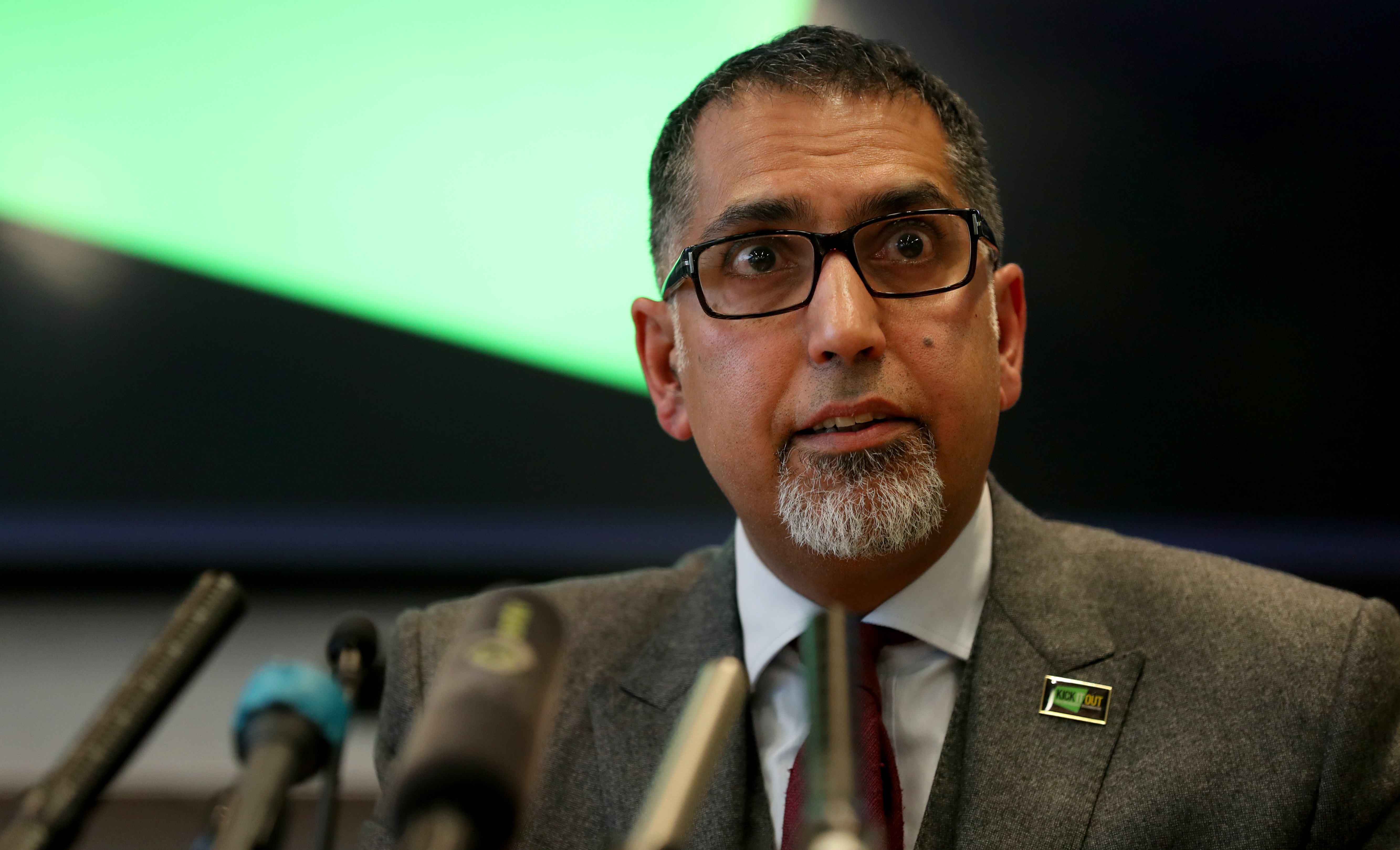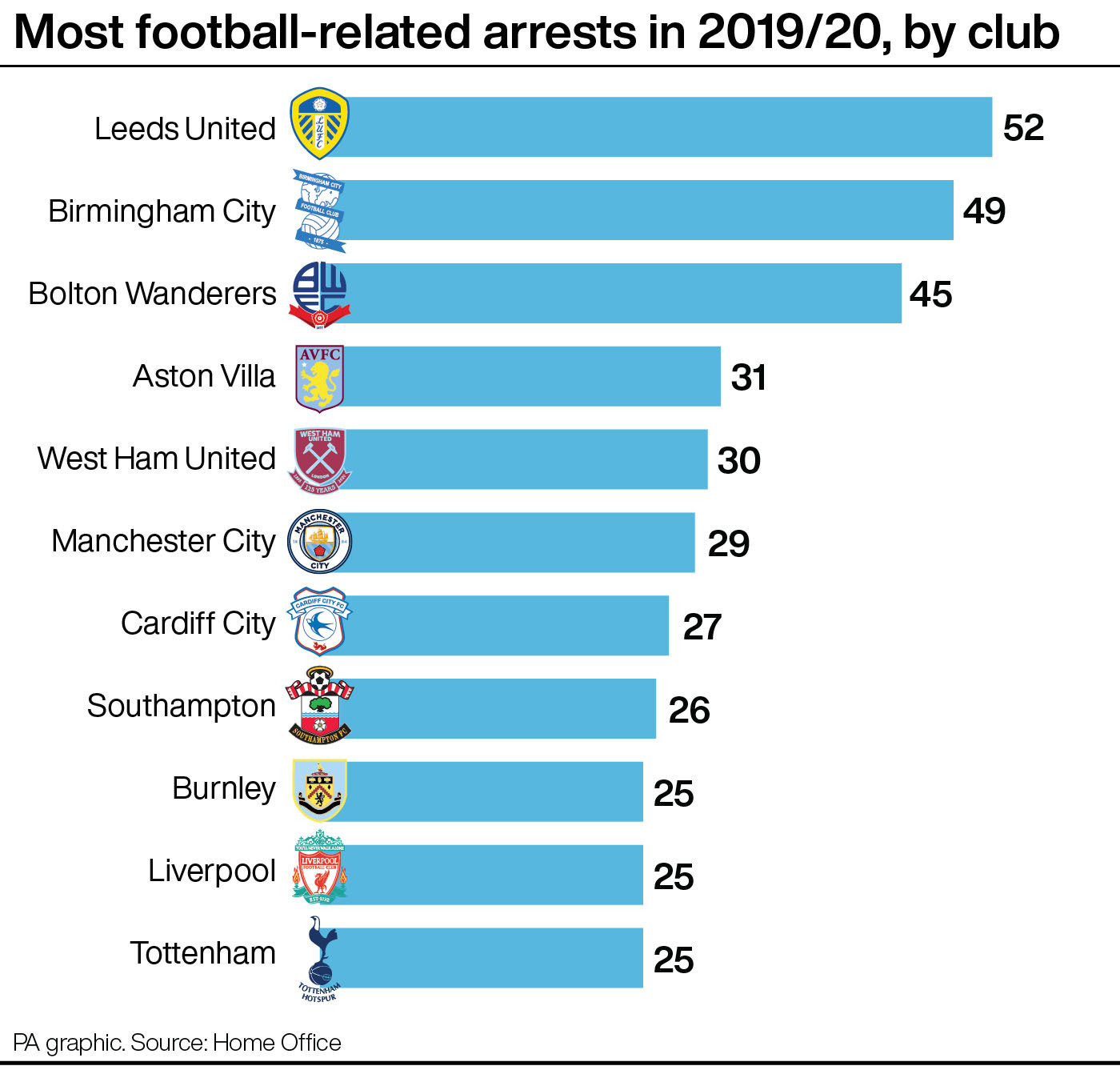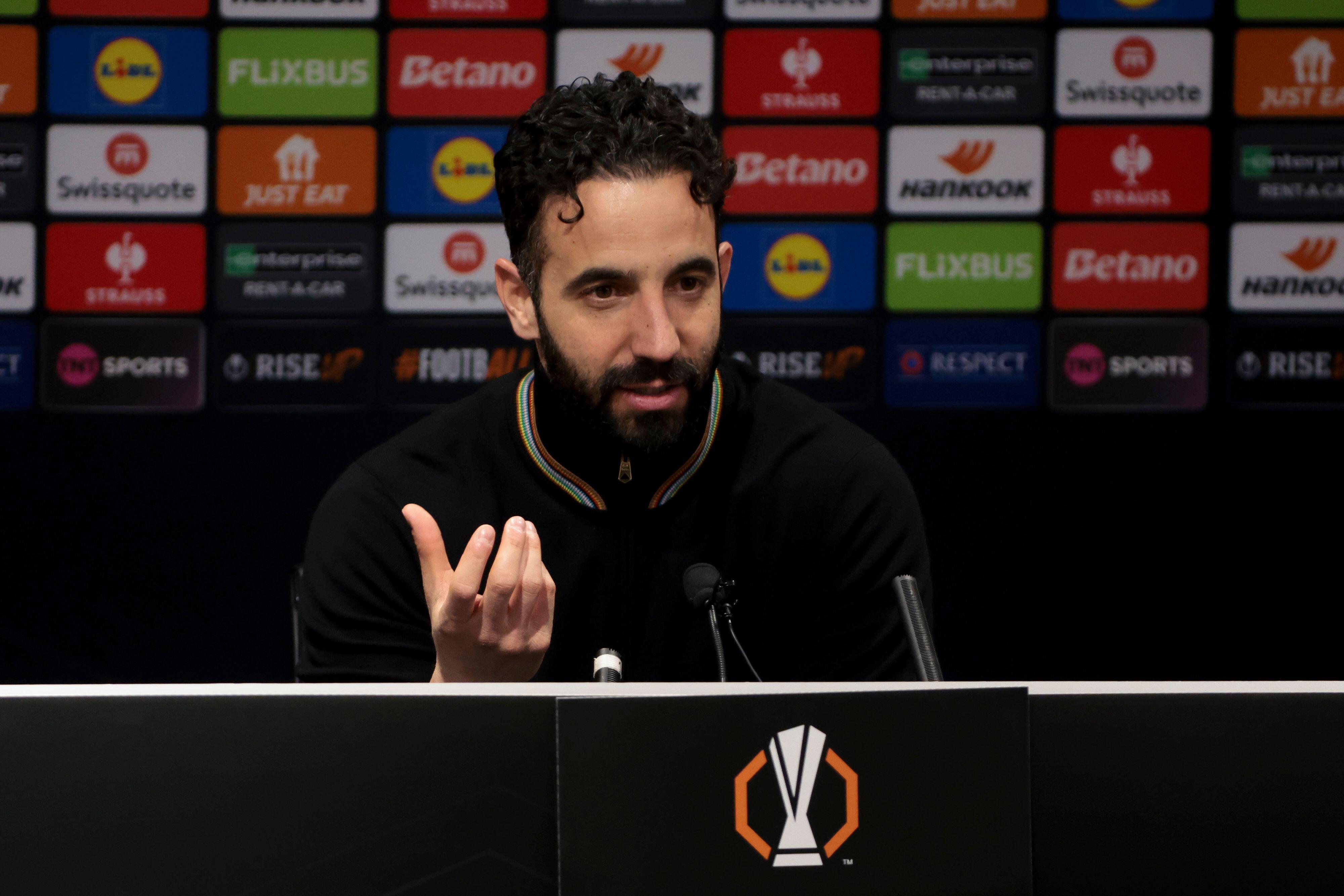Football police chief says rise in hate crime figures is ‘incredibly concerning’

Arrests for racist and indecent chanting more than doubled last season compared to the campaign before despite severe restrictions on fan attendance, a Home Office report states.
There were 35 such arrests in 2019-20 compared to 14 in 2018-19, even though 546 matches were either cancelled or played behind closed doors last season due to the coronavirus pandemic.
Manchester City were the club with the highest number of this type of arrest – six – with Cardiff recording five.
For the first time, the 2019-20 report also logged every hate crime incident – whether online or in person – which had been reported to the UK Football Policing Unit by anti-discrimination body Kick It Out or the Football Association.
- 33 (2014-15)
- 17 (2015-16)
- 7 (2016-17)
- 15 (2017-18)
- 14 (2018-19)
- 35 (2019-20)
It found there were hate crime incidents related to 287 matches, a figure which the UK’s football policing lead described as “incredibly concerning”.
The incidents reported often included more than one form of discrimination. The report said 214 featured discrimination by race, 78 referenced sexual identity, 23 mentioned religion, three related to disability and one to gender identity.
Other areas of concern were the number of reports of assaults on stadium staff and police officers, which were only just below 2018-19 levels despite the impact of Covid-19 on fan attendance.
Get FourFourTwo Newsletter
The best features, fun and footballing quizzes, straight to your inbox every week.
There were 120 reports of stadium staff being assaulted in 2019-20, only five fewer than in 2018-19, while there were 46 reports of police officers being attacked, compared to 57 in 2018-19.
The UK’s football police chief, Deputy Chief Constable Mark Roberts of South Yorkshire Police, told the PA news agency: “The hate crime figures are incredibly concerning.
“We want to see this behaviour eradicated from football. We are working closely with Kick it Out, the Premier League and other partners, with a concerted effort to tackle hate crime both in the stadium and online.

“It is important the clubs and the leagues continue to ensure the police are made aware of all incidents so local forces can work with them to tackle the incidents as they occur.
“We are also working to help tackle the causes of hate crime, with a mixture of education, helping those involved to understand the harm it causes, and diversionary activities for young supporters.
“This will remain a focus until we are able to eliminate this vile behaviour and ensure a safe and friendly space for everyone to support and enjoy football.”
A Home Office spokesperson said: “Hate crime has no place in football or anywhere else and we must all come together to confront it.
“The increase shown in these statistics is partly down to better recording and awareness, but we have no complacency in stamping out this evil from the game.
“We are bringing forward legislation to force social media companies to remove racist, homophobic and anti-Semitic abuse and we are working closer than ever before with the football authorities to bring perpetrators to justice.”
Kick It Out’s annual report, published earlier this month, showed there had been a 42 per cent increase in reports of discrimination last season compared to 2018-19 – going up from 313 to 446.
Kick It Out chair Sanjay Bhandari told PA: “We need to mobilise everyone to stand against the rise in hate.
“Kick It Out will play its part with campaigning, education and talent programmes that diversify the face of football. But this is everyone’s responsibility. We all need to do more and we all need to take a stand against discrimination.
“We also look forward to working with the Home Office and the government to look at better protection for players, fans and participants of football, especially when it comes to online hate.”

DCC Roberts, who had spoken during lockdown about the possibility of playing matches at neutral venues to avoid mass gatherings, praised the behaviour of the majority of supporters in staying away from venues.
“With the restrictions placed on matches, I want to say from the outset that aside from the high-profile incidents seen in Liverpool and Leeds, the vast majority of fans respected the regulations and stayed away, as they were asked to do,” he said.
The Home Office data also looked at banning orders and other football-related arrests.
It reported there were 1,089 football-related arrests in 2019-20, a decrease of 21 per cent compared to 2018-19 but with over 500 fewer matches either played or played in front of fans.
Leeds were the club with the highest number of arrests (52), followed by Birmingham (49) and Bolton (45).

The downward trend in the number of banning orders in force and in circulation continued.
Banning orders are issued following a conviction for a football-related offence, and prevent that individual attending all regulated matches in the UK.
The number in force as of August 1 this year was 1,621, a drop of eight per cent compared to the same date in 2019.
The report showed 360 new banning orders were issued in 2019-20, down 34 per cent compared to 2018-19.
Stoke had the most banning orders in force during 2019-20 (52), while Mansfield and Bolton were the clubs whose supporters were issued the most new banning orders in the season – 34 and 24.
